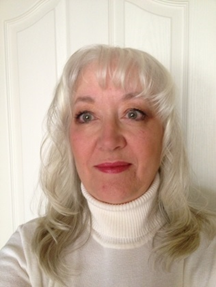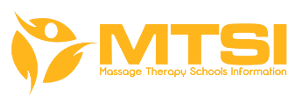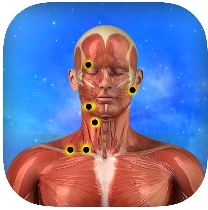
My name is Debbie Benson, and I have been a massage therapist since 1990. I started my career as an independent business owner and except for a short time working for a chiropractor, have continued to be self-employed. For the last 15 years I have worked with my husband who is also a massage therapist. A year ago we opened an office within a chiropractor’s office and are working on building our business. We also have been talking to the local schools about offering continuing education classes that we teach.
My husband Tom focuses on Medical, Sports and treatment massage. I focus on pain relief, body imbalances, energy work and Touch For Health Kinesiology. We both are involved in doing Sports Massage events and members of the National Championship Sports Massage Team and Tom is working on starting a California Sports Massage Team. We live and work in the Antelope Valley, California.
2. Tell us why you chose to go into massage and at what point in your life did you decide to do so? What were you doing at the time? Where did you first hear about the massage career? What factors influenced your decision? What were you looking to get out of this decision?
I went into massage after working at several jobs that were not very satisfying and restrictive on my time. A friend of mine was a Massage Therapist and encouraged me to go to school. I found an affordable program not very far away and soon realized I loved it.
3. What were some of your questions and concerns before further pursuing your massage therapy goals? Talk about concerns with school and the profession itself.
When I started in massage, I found the process very easy and I enjoyed having some choices as to what topics I could take after the basic courses were completed. Students today have more limitations, and most of the school options are corporate run schools. In California we are waiting for the Sunset Review to be completed and are hoping the decision will be a move forward instead of a step backward. We would like to see California have a statewide license and move toward the Department of Health governing massage and away from the police/vice squad like when I started.
4. What is your specialty and what are the top three contributing factors to your success today?
My specialty is my professional kinesiology and working with emotions. I have the “tools” to address any issue that a client is dealing with, not only the surface issues but the underlying and past issues. I am able to treat each client as an individual and work their area of concern while still giving them a complete treatment if that is what they are wanting. The third factor for us is that Tom and I work together and if there are issues of a more “western medical model”, I will get Tom involved and if there is an emotional issue with one of his clients, he will ask me to step in and help the client.
5. What do you like about your specialty? What do you like about what you do in general as a career? Why?
I love doing the kinesiology work because there is always an element of surprise with the work. I tell clients with muscle testing we are accessing the body’s bio-computer. What is so exciting is that anything that has happened to a person throughout their life can be accessed to determine what the root cause of their current issue is and correct the issue. I love having the flexibility of my time, to determine when I work and if I need time to do something other than work any time of day.
6. What do you not like about what you do? Why?
I don’t like being on the phone. I would like to have a front office person, but don’t have a front office.
7. If there were three things you could change about your work or the industry as a whole what would they be? Why would you change them? What would you change them to?
If I could I would have massage considered part of the health care industry. We know that what we do is to assist our clients in achieving better health, relief from pain and reduce stress as well as many other health benefits.
8. How long do you plan to practice and what do you plan to do after?
I plan on practicing as long as I am able to, and if I am no longer able to practice I do hope I would still be able to teach.
9. Do you currently have another job or business whether full time or part time? Tell us a bit more about it and how you are able to juggle that with your massage career?
I don’t have another job, but I do have hobbies that I enjoy doing.
10. What are some mistakes you made in your career pursuit that you’d like to warn other students about so they can learn from your experience and avoid it?
The biggest thing I would say to this is to plan ahead…. Take care of yourself and plan for your future.
11. What would you advice someone who is looking at massage therapy schools? What do you recommend they look for and how? How do you recommend they determine whether the school is the right one for them?
The cheapest school is not necessarily the best choice. A well rounded program that is strong on their students learning the material and not just passing the tests will serve them better in the end. The best way to determine whether or not a school is the right one from them is to talk to graduates that are both recent and those that have been in the industry a while.
12. What do you recommend for someone who wants to go to massage school but cannot afford it?
Borrow from family, small business loan, payment plans, credit cards, see if there is a job at the school where they could work to pay for their schooling.
13. What are your three biggest points of advice for an aspiring massage therapist today? What should they do/not do? What should they think about and consider?
Be confident in what you do. Lack of confidence will show up in the hands and will translate to the client that they don’t know what they are doing. Really listen to what the client says both on their intake form and verbally. If they are asked what areas they want worked on, make sure to work those areas. Watch the clock. If they are paying for 60 minutes, then they should get 60 minutes, it should be clear as to the amount of time that is hands on. I get frustrated when I pay for what is advertised as a 60 minute massage and end up with 45 minutes. Wash your hands and up to and include your elbows if you are going to use forearms and elbows. Everything that is touched after starting the massage should be wiped down before the next client, door handles, radio or CD players, lotion/oil bottles .
14. Any open thoughts / comments – anything else that you’d like to share about yourself, the massage industry, profession, future, etc? If nothing, make one prediction for the future of massage?
The closer our industry gets to becoming accepted in the healthcare system, the more training will be required and the more laws there will be governing what we do.
15. What is your passion outside of massage? What are your hobbies and interests which you pursue when you are not working? Tell us why you enjoy what you enjoy.
I love to read, sew, knit, and machine embroidery. I have a granddaughter who will be 1 in July and I love making things for her. I love creating things and get satisfaction out of a completed project.
Debbie Benson CA-CMT, BCMT can be reached through her website at www.need2be-kinesiology.com.








Leave a Reply